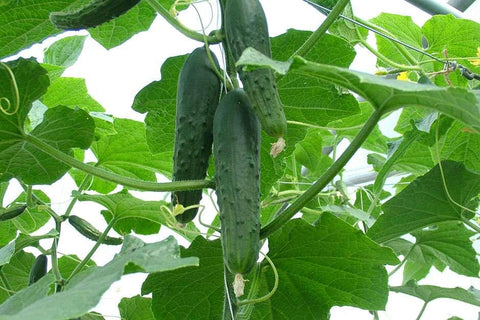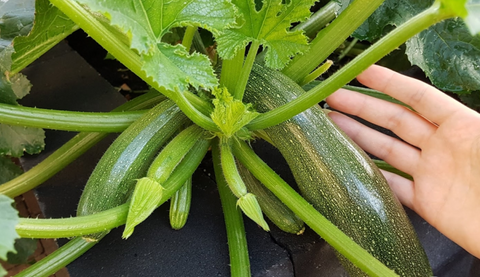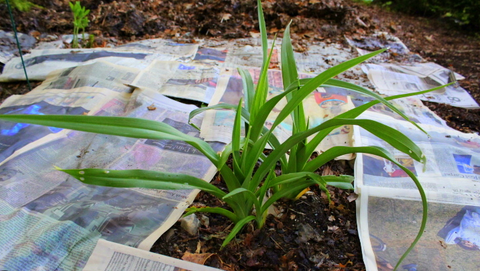Welcome to the Garden of Calm
Picture this: a tranquil space where the rustle of leaves and the fragrance of blooming flowers transport you to a place of peace. This is your garden of calm, an oasis where stress melts away and your mind finds its balance. Welcome to the world where green is not just a color, but a state of mind.

Why Gardening is the New Yoga for Your Mind
Move over yoga mats; garden gloves are the new tools of tranquility. Gardening offers a meditative escape, grounding you in the present moment as you nurture life. It’s more than a hobby—it’s a therapy session for your mind, reducing anxiety and fostering a sense of purpose.
Digging Deep: How Soil Therapy Works
Getting your hands dirty has never been so beneficial. Soil therapy, or ecotherapy, is about connecting with the earth. The act of digging and planting taps into primal instincts, releasing endorphins and promoting a sense of well-being. This tactile interaction with soil has been shown to reduce stress hormones and lift moods.
Stress Less: Gardening as a Stress-Buster
Imagine a stressful day dissipating as you prune roses or water your vegetable patch. Gardening acts as a powerful stress-buster, shifting focus from worries to the simple, repetitive tasks that calm the mind. It’s a natural, immersive way to unwind and reset.
The Zen of Weeding: Mindfulness in the Garden
Weeding might seem mundane, but it’s a gateway to mindfulness. As you pull weeds, you engage in a practice that requires attention and presence. This simple act becomes a form of meditation, clearing both your garden and your mind of unwanted clutter.
Vitamin G(arden): Nature’s Antidepressant
Gardening is like taking a daily dose of nature’s antidepressant. The fresh air, the sunlight, and the physical activity all combine to boost serotonin levels. This “Vitamin G” is essential for mental health, providing a natural lift to your spirits.
Flower Power: The Mood-Boosting Magic of Blossoms
Blossoms have a magical way of lifting moods. Their colors, fragrances, and delicate forms bring joy and satisfaction. Whether it’s the vibrant hues of tulips or the gentle scent of lavender, flowers can transform a bad day into a beautiful one.
Green Thumb, Happy Heart: Cardiovascular Benefits
Gardening isn’t just good for the soul; it’s great for the heart. The physical activity involved—digging, planting, weeding—provides cardiovascular benefits. It’s a workout that doesn’t feel like one, promoting heart health while you cultivate your green space.
The Great Outdoors: Sunlight and Serotonin
Sunlight is a natural mood enhancer, and spending time in the garden ensures you get your daily dose. Exposure to sunlight boosts serotonin production, lifting your mood and helping to stave off depression. It’s an effortless way to soak up happiness.

Garden Social: Connecting with Others
Gardening is also a social activity, fostering connections with others. Whether it’s chatting with a neighbor over the fence or participating in a community garden, these interactions enhance social bonds and provide emotional support.
Community Gardens: Growing Friendships
Community gardens are fertile ground for friendships. These shared spaces bring together people of all ages and backgrounds, united by a love of gardening. Working side by side, gardeners share tips, stories, and a sense of community.
Family Bonding Over Blooms
Gardening is a wonderful way to bond with family. Planting, weeding, and harvesting together create shared experiences and memories. It’s a screen-free way to spend quality time, teaching children about nature and responsibility.
Gardening Clubs: Finding Your Tribe
Joining a gardening club connects you with like-minded enthusiasts. These groups offer a supportive community where you can exchange ideas, learn new techniques, and find companionship. It’s about growing friendships as much as plants.
Gardening as Therapy: Beyond the Basics
Beyond its basic benefits, gardening offers profound therapeutic effects. It’s a holistic activity that engages the mind, body, and spirit, providing a multifaceted approach to mental health.
Horticultural Therapy: Healing with Plants
Horticultural treatment involves gardening activities to help both mental and physical wellness. This practice, guided by trained therapists, helps individuals with depression, anxiety, and other conditions. It’s about healing through hands-on interaction with plants.
Gardening for Grief: A Path to Healing
Gardening can be a soothing balm for those grieving. The act of nurturing plants mirrors the process of healing, offering a tangible way to cope with loss. It provides a space for reflection and renewal, where life continues to grow.
Recovery Gardens: Rebuilding After Trauma
Recovery gardens are designed to help individuals rebuild their lives after trauma. These spaces offer a peaceful environment for reflection and growth, aiding in the recovery process. The act of caring for plants helps restore a sense of control and purpose.
Garden Goals: Setting and Achieving for Self-Esteem
Setting and achieving garden goals boosts self-esteem. Whether it’s planting a new flower bed or harvesting your first tomatoes, these accomplishments provide a sense of pride and satisfaction. Each success in the garden translates to a boost in confidence.
Creativity in Bloom: Artistic Expression in the Garden
Gardening is a form of artistic expression. From designing a layout to choosing plant colors, it’s a creative process that allows you to express yourself. Let your imagination run wild and watch your garden become a living canvas.
Color Your Mood: The Psychology of Garden Colors
Colors in your garden can influence your mood. Bright, warm colors like red and yellow energize, while cool blues and greens soothe. Understanding the psychology of colors can help you create a garden that supports your mental well-being.
Sensory Gardens: Engaging All Five Senses
Sensory gardens are designed to engage all five senses, creating a fully immersive experience. Textured leaves, fragrant flowers, colorful blooms, the sound of rustling leaves, and edible plants combine to stimulate and soothe the senses.

The Science Behind Gardening and Mental Health
The benefits of gardening for mental health are backed by science. Numerous studies highlight how this simple activity can have profound effects on our brains and bodies.
Studies and Statistics: The Hard Data
Research shows that gardening reduces symptoms of anxiety and depression. Studies indicate that regular gardening can lower cortisol levels, reduce stress, and improve overall mental health. The data supports what gardeners have known for centuries: plants heal.
Brain Chemistry: The Science of How It Works
Gardening influences brain chemistry, promoting the release of serotonin and dopamine. These neurotransmitters are essential for mood regulation, and the physical activity of gardening helps stimulate their production, leading to improved mental health.
Immune Boost: Gardening and Physical Health
Gardening also boosts your immune system. Exposure to soil microbes, physical activity, and time spent outdoors all contribute to a stronger immune response. A healthy body supports a healthy mind, making gardening a holistic health activity.
Gardening Tips for Mental Health
Gardening for mental health is accessible to everyone, regardless of experience. These tips can help you get started and make the most of your gardening journey.
Starting Small: Easy Projects for Beginners
Begin with small, manageable projects. Plant a few herbs in pots or create a small flower bed. These easy tasks provide quick rewards and build confidence, encouraging you to take on bigger projects.
Mindful Planting: Techniques to Stay Present
Mindful planting involves being fully present in the moment. Focus on the sensations of gardening: the feel of soil, the scent of flowers, the sound of leaves rustling. This mindfulness practice can reduce stress and enhance the joy of gardening.
Seasonal Gardening: Embracing Change
Embrace the changing seasons in your garden. Each season brings new tasks and opportunities, keeping your gardening practice dynamic and engaging. Seasonal gardening also helps you stay connected to the natural rhythms of the earth.
Overcoming Gardening Challenges
Gardening isn’t without its challenges, but overcoming them can be part of the therapeutic process. Here’s how to handle common issues.
Dealing with Plant Loss: Coping Mechanisms
Plant loss can be disheartening, but it’s a natural part of gardening. Use it as a means for growth and development. Reflect on what went wrong and plan for a better outcome next time. Resilience in the garden translates to resilience in life.
Time Management: Balancing Garden and Life
Finding time for gardening can be challenging. Integrate it into your daily routine, even if it’s just a few minutes a day. Consistent, small efforts can yield significant rewards, making gardening a sustainable part of your life.
Budget Gardening: Mental Health on a Dime
Gardening doesn’t have to be expensive. Start with seeds, cuttings, or inexpensive plants. Recycle containers and use household items as gardening tools. Budget gardening is accessible and just as rewarding.

Your Gardening Journey: Starting Today
Your gardening journey begins with a single step. Here’s how to start cultivating your mental health garden today.
Finding Your Why: Personal Motivation
Identify your personal motivation for gardening. Whether it’s stress relief, creative expression, or connecting with nature, knowing your “why” will keep you inspired and committed.
Planning Your Space: Big or Small
Plan your garden space, whether it’s a sprawling backyard or a small balcony. Consider your goals, available space, and plant preferences. A well-planned garden is a joy to create and maintain.
Taking the First Step: Planting Your Mental Health Garden
Take the first step by planting something today. Choose a plant that excites you and get started. The act of planting is a powerful symbol of new beginnings and growth.
Nurture Your Mind, One Plant at a Time
Gardening is more than a pastime; it’s a pathway to mental well-being. By nurturing your garden, you nurture your mind. Embrace the joy of growing and let each plant be a testament to your journey toward mental health.
Join the gardening revolution today. Whether you’re a seasoned gardener or a novice, there’s a place for you in the world of green therapy. Start planting and experience the transformative power of gardening.









